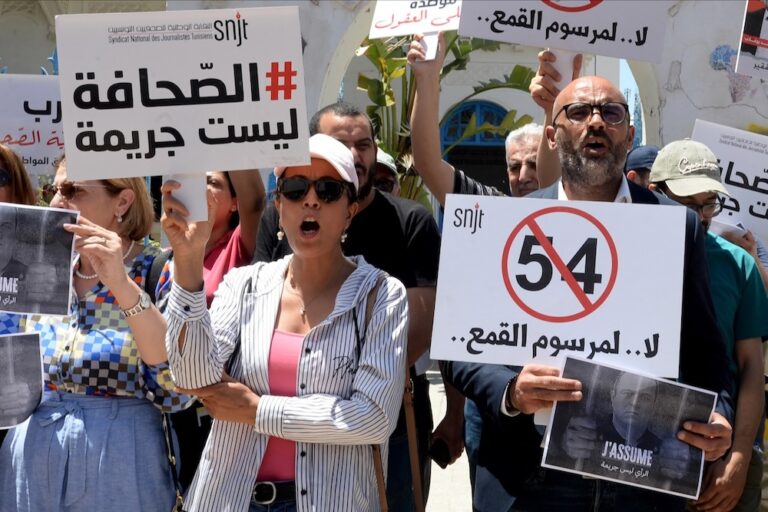(RSF/IFEX) – In a letter to Minister of Communications Afif Hendaoui, RSF expressed its concern about the delays in the distribution of the French weekly “Jeune Afrique – L’Intelligent”, in Tunisia. RSF Secretary-General Robert Ménard said that: “These repeated delays are a form of censorship by Tunisian authorities, who, once again, are targeting foreign publications […]
(RSF/IFEX) – In a letter to Minister of Communications Afif Hendaoui, RSF expressed its concern about the delays in the distribution of the French weekly “Jeune Afrique – L’Intelligent”, in Tunisia. RSF Secretary-General Robert Ménard said that: “These repeated delays are a form of censorship by Tunisian authorities, who, once again, are targeting foreign publications which criticise the regime.”
According to information collected by RSF, the weekly “Jeune Afrique – L’Intelligent” usually arrives in Tunis on Monday evenings, and is distributed the following day, or two days later. However, since April 2000, readers of the weekly have noticed that several issues have been distributed almost a full week later. Moreover, the newspaper’s managers were informed by its local distributor that “the newspaper’s correspondent [in Tunisia] would no longer be invited to events that other journalists are invited to attend.” The distributor added that “the administrative offices, Tunisian embassies around the world, public and semi-public companies subscribed to “Jeune Afrique – L’Intelligent” will cancel their subscriptions,” and “no Tunisian government advertising will appear in the weekly’s pages anymore.” In its 3 July issue, the newspaper’s management concluded that it had been penalised because it had published an article stating that “after forty-four years of independence and stability, Tunisia can – and must – move more quickly towards democracy, and better respect human rights and liberties”.


